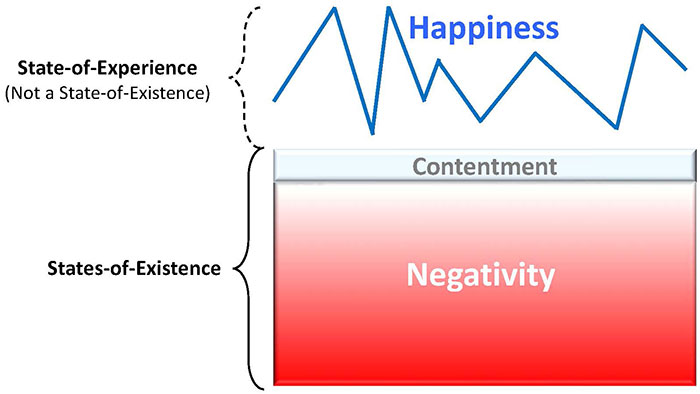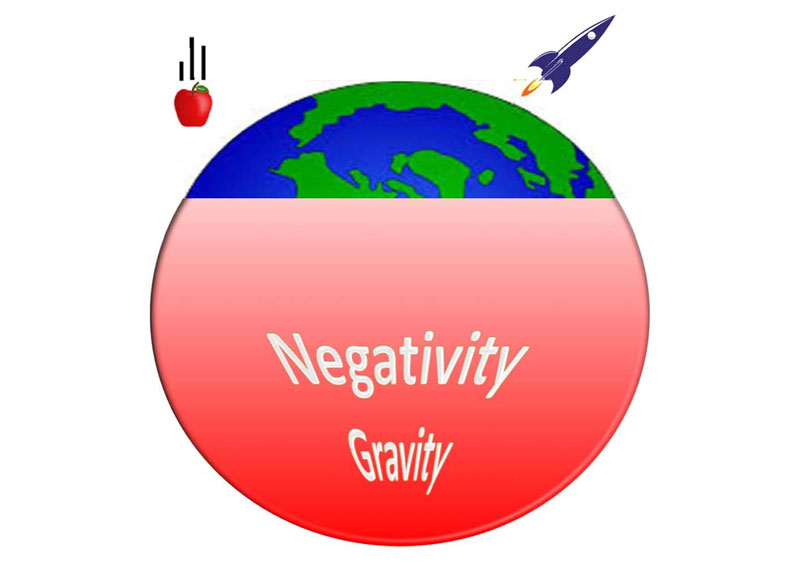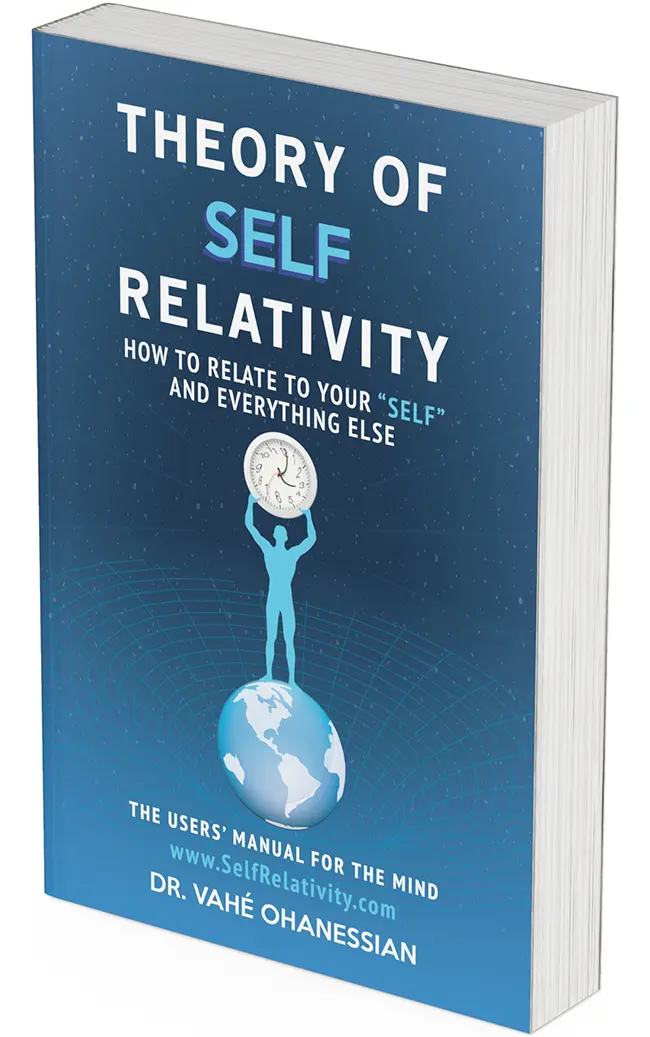Happiness
If you feel negative more often than you feel positive and if your negativities arise faster and last longer than your positivities; you are simply a normal human-being.
The primary reason we have not been able to reach positivity and long-lasting happiness is that we have been approaching this problem incorrectly; we have been too focused on the desired effect without properly addressing the cause. As human beings, we are so focused on trying to feel good that we’ll think of anything and we’ll do anything to avoid pain, to feel good, or at the minimum, to feel less bad; hence, why we self-deceive continuously. Motivational and self-improvement teachings, some intentionally and some unknowingly, capitalize on this desire to feel better and bombard us with unrealistic and nonfactual chest-pounding and pep-talking speeches to give us a shot in the arm of dopamine so that we can experience our desired feelings. Initially, we get our hopes up by believing that the next motivational program will show us how to reach the state of forever happiness, only to realize a short time later that we didn’t learn anything helpful in us reaching stable and eternal happiness. Sensationalistic statements such as “in pursuit of happiness” are nothing but a fallacy that people believe in because it makes them feel good.
We mustn’t be in pursuit of happiness; we should be in pursuit of less negativity.
In reality, happiness is not something that is pursued or found; happiness is something we have to build and maintain; there is no easy way to achieve it however we can increase the frequencies and the durations of happiness if we truly learn how to self-improve. True self-improvement begins with addressing the negative cause before achieving the intended positive effect.
Negativity Stinks
Negative feelings and emotions are disliked, and uncomfortable and they make us feel bad. As discussed throughout the Theory of Self-Relativity, negative feelings are similar to body-odor or bad-breath; they stink therefore in trying to deal with them we must similarly treat them. We cannot cover up negativity with positivity just as we cannot cover up body-odor with just perfumes and without bathing. Since we bathe our body to remove and eliminate the body-odor-causing bacteria before applying perfumes and fresheners, why is it that we don’t remove or eliminate the causes of our negative feelings before we try to feel positive? The reason for that is that we want quick-fixes instead of achieving longer-term solutions. Removing negativity just like bathing is a process that takes time; we cannot just accomplish it by spraying positive thoughts on our smelly negative feelings. To reach positivity and to experience more episodes of happiness, we must first minimize and remove negativities. Without removing negativities, we will not be able to experience sustainable positivities and happiness; therefore, we must learn and apply the process of bathing our thoughts so that we can finally reach more sustainable and longer-lasting episodes of happiness.
To feel good, you must think well.
Theory of Self-Relativity metaphorically categorizes our mind in two components the “Primitive-Mind” and the “Intelligent-Mind”. Our primitive mind is the dominant component because its main purpose is to detect threats and dangers so that it can keep us safe. Our intelligent mind is the component that allows us to progress and reach positivity and happiness. Since our primitive mind is the dominant component and its job is to detect threats and dangers, it does so by notifying us through negative emotions the possibility of a threat or danger that it senses.
Therefore, our primitive mind is dominant and our default state of existence is negativity.
The reason why our default state of existence is negative is because negativity serves as a protective mechanism. As long as the primitive mind feels real or imagined threats or dangers it will be in the driver’s seat to try to keep us safe. Our primitive mind doesn’t care if we are happy; all it cares about is if we are safe. Since in modern times, we do not confront as many survival threats and dangers as we did in primitive times; our primitive mind elevates our next strongest negative emotions to the level of emotions associated with threats and dangers.
For us to minimize the effects of our primitive mind so that our intelligent mind can take over, we must change our thinking patterns so that we can identify, resolve and eliminate the causes of the negativities that our primitive-mind is associating itself with. Since these negativities could be real or perceived therefore factual-thinking is the only way for us to objectively evaluate the causes of our thoughts whether they are real threats and dangers or whether our primitive-mind is instinctually treating any negative-emotion as a threat or danger. It is because of this protective and dominant nature of our primitive-mind and its intent to keep us safe that we have so many more negative-feelings than positive positive-ones and it is because of this dominance that positive-thinking and other motivational mental practices do not resolve or eliminate our negativities; they are simply temporary cover-ups.
Since negativity is our default state of existence and positivity is only a condition of our existence which means positivity and happiness are states of “experience”; consequently, neither true positivity nor lasting happiness is possible unless we first minimize and eliminate negativity. Furthermore, we cannot just eliminate negativity at the snap of a finger and begin to feel positivity forever. To experience positivity and more episodes of happiness, we must first begin the process of minimizing negativity and attempt to reach a state of contentment. Once we reach contentment, we can then try to keep our Self maintained in the contentment-zone without sinking back down into negativity. It is only then that we can begin building positivity and happiness on top of our contentment.

Negativity is a state-of-existence however positivity and happiness are states of experience.
Since negativity is a state-of-existence and negativity is the default programming of our mind, this is why if we don’t do anything and if we don’t constantly put in effort to make positive-change and to maintain and build upon the changes achieved; we will sink back into negativity. Hence the common references to negativity, unhappiness, and sadness as having a “sinking-feeling” because it feels like negativity has a weight that pulls down like gravity. In this metaphorical analogy, negativity effortlessly pulls down like gravity however; positivity, like a rocketship, requires active energy and effort to escape the gravitational pull of negativity. Theory of Self-Relativity refers to this metaphoric pulling down effect of negativity as “Negativity-Gravity”.

Since negativity-gravity pulls down and negative-feelings give us a sinking feeling; to feel positive, we must first escape the pull of negativity by minimizing and eliminating negativity. This is why methods such as positive-thinking and other hypothetical energy-based theories of thinking and vibrational-existence do not work because we cannot escape the pull of negativity by just trying to feel positive; we must burn fuel and put in the effort to make positive-change and truly escape the pull of negativity. Once we escape the pull of negativity and we begin cruising in the contentment-zone, we can then put in effort to increase our positivities and our experiences of happiness.
Since negativity is a state-of-existence but positivity and happiness are states-of-experience and not states-of-existence; this is why happiness cannot last and its effects always fades away. To be happy, we must first resolve most of our negativities so that we can elevate our state-of-existence to the contentment-zone and while maintaining our Self in the contentment-zone, we should continuously nip new negativities in the bud so that they don’t become bigger negativities. As we maintain our Self in the contentment-zone we must put in a further effort to not only remain in contentment but to elevate ourselves to positivity in trying to experience more episodes of longer-lasting happiness.
Unlike comforting-beliefs, there is no such thing as eternal-happiness because happiness is a form of reward that we experience and its effects slowly fade away. The goal is to fallback into the zone of contentment as happiness fades away so that experiencing the next happiness can be achieved more easily. Therefore, to feel happier, we must ensure that we put in the effort to maintain ourselves with less-negativity by living in the zone of contentment.

